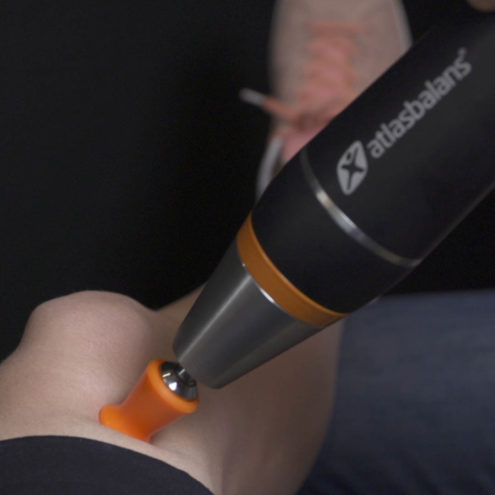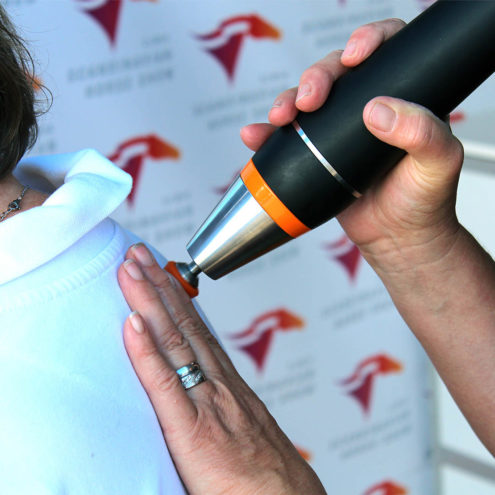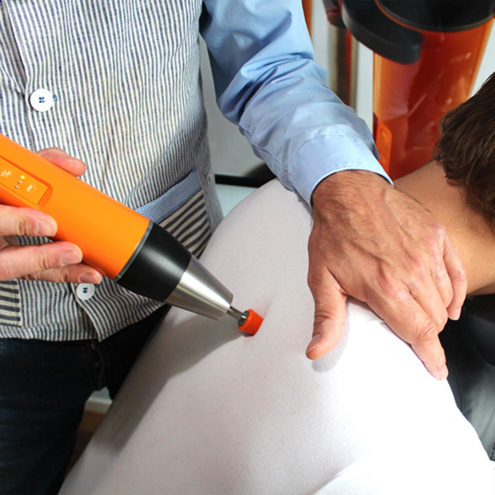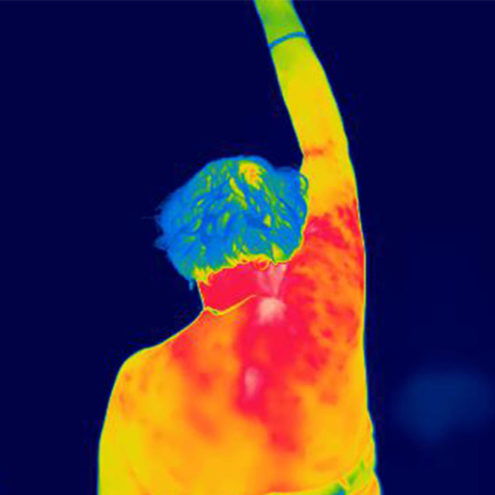Sleeping position for herniated discs

The importance of correct sleeping position for herniated discs
If you suffer from a herniated disc, the pain can affect your sleep. Finding the right sleeping position can be crucial to reduce strain and pressure on the spine. A good sleeping position that reduces the symptoms of a herniated disc can lead to better sleep. Good sleep promotes the body’s healing process.
A herniated disc occurs when the jelly-like nucleus of an intervertebral disc (nucleus pulposus) in the spine bulges through a crack in the outer ring of cartilage fibers. This can lead to nerve damage causing pain and discomfort. Adjusting your sleeping position can reduce pressure on the affected disc and promote better sleep quality and healing.
Sleeping Positions for Herniated Discs
Back support: Lying on your back with one or two pillows under your knees can relieve the spine and reduce pressure on the disks. This can help maintain a neutral curve in the spine and relieve pain and discomfort. By having a pillow under the knees, the pelvis gets a slight tilt backwards, reducing the excessive curve of the lumbar spine.
Side lying: Sleeping on your side with your legs slightly bent can be comfortable for people with a herniated disc. Place a pillow between the knees to maintain a neutral position and reduce strain on the spine. This position helps keep the spine in alignment and reduces pressure on the disks.
Feet elevated: Lying on your back and placing a pile or several pillows under your feet elevates your legs and reduces pressure on your back. This can promote better blood circulation and relieve discomfort. Elevating the feet reduces pressure on the spine and reduces swelling in the legs and feet.
Customizing pillows: It can be beneficial to try different pillows to provide the right support and relief for your back. An ergonomic pillow or a pillow specifically designed for people with back problems can be helpful. A pillow that supports the neck and keeps the head in a neutral position can help relieve tension and pain in the neck and back.
Avoid certain sleeping positions
Some sleeping positions may be less beneficial and should be avoided by people with herniated discs. Sleeping on your stomach can create an excessive arching of the back and increased stress on the discs. It is best to avoid sleeping in this position if you have a herniated disc. Sleeping with your legs to the side can misalign your spine and make symptoms worse. Try to keep your legs in a neutral position to avoid overloading your back.
Additional tips for better sleep with herniated discs
In addition to finding the right sleeping position, the following tips can help improve sleep and comfort in cases of herniated discs:
Use a comfortable mattress and pillow that provide sufficient support for your back. A mattress that adapts to the contours of your body can be particularly beneficial. A medium-firm mattress can be a good choice as it provides enough support without being too hard or soft.
Avoid eating large meals or consuming caffeine before bedtime, as these factors can negatively affect sleep. A light meal a few hours before bedtime may be more beneficial for sleep.
Create a quiet, dark and cool sleeping area to facilitate sleep. Blackout curtains and the use of white noise or soothing music can help create an optimal environment. Strong light sources and noises should be avoided as they can negatively affect sleep quality.
Use relaxation techniques or breathing exercises to reduce stress and tension in the body before bedtime. Deep breathing, progressive muscle relaxation and meditation can be effective tools to promote relaxation and sleep.
Go to a fascia specialist
A certified fascia specialist can provide you with personalized advice based on your individual needs and symptoms. A fascia specialist can provide additional insight and treatment options to facilitate sleep and promote the healing process of herniated discs. Be sure to follow their advice and adjust your sleeping position to what feels most comfortable and pain-free. Remember that each individual may experience herniated discs differently, and an individualized treatment plan can be crucial to achieve the best results.
 Search
Search































